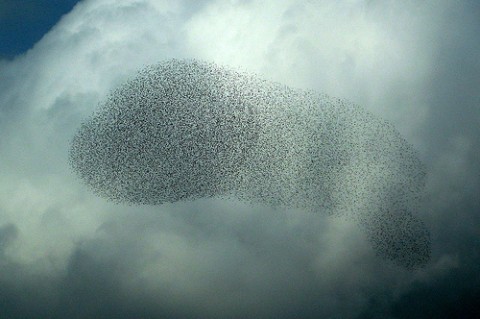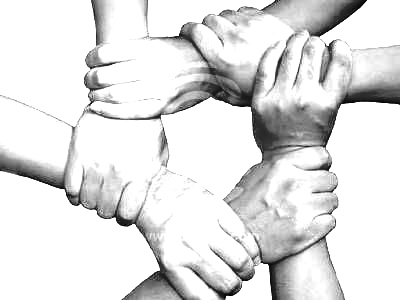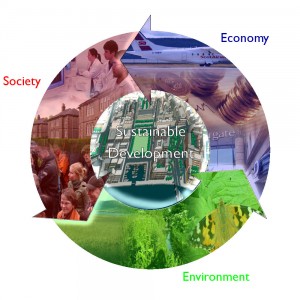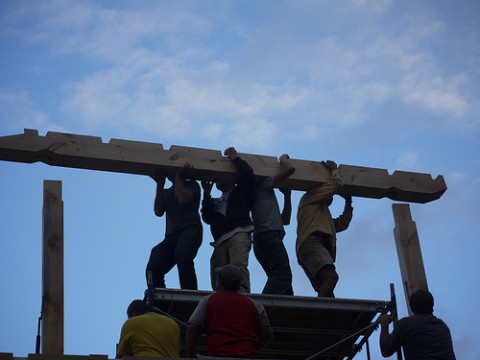Tag Archive: self-organization
September 25, 2013

Our friend Jane Wei-Skillern recently co-wrote (along with Nora Silver and Eric Heitz) another valuable contribution to the growing “network building” body of literature, entitled “Cracking the Network Code: Four Principles for Grantmakers.” This piece is part of Grantmakers for Effective Organizations’ learning initiative, Scaling What Works. While the guide mainly addresses funders, it also has something for those outside of the philanthropic world. Its core offering is a set of principles to guide what the authors call “the network mindset”: Read More
September 18, 2013
“Don’t search for the answers, which could not be given to you now, because you would not be able to live them. And the point is to live everything. Live the questions now. Perhaps then, someday in the future, you will gradually, without even noticing it, live your way into the answer.”
-Rainer Maria Rilke, 1903 in Letters to a Young Poet

|Photo by muffinn|http://www.flickr.com/photos/26445715@N00/3092761353/in/photolist-5HidcB-7fk9W4-7fk9YM-7fp2H9-7fp3vd-7ueieU-fhxQiW-8Vb4qT-8Vb3LB-8Ve8tA-8Ve8Cf-8Ve8dS-9ifHmE-9icD5Z-defTUR-d8TvrY-d8TDNN-8RZpMu-d8ToLu-daa2HF-8RAUDQ-7FG4oc-d8SYJo-da9Uxx-da9WRc|
In their article, “Using Emergence to Scale Social Innovation,” Margaret Wheatley and Deborah Frieze highlight the critical role of self-organization, spontaneous and purposeful arrangement and action without formal or “external” management, in facilitating social change. As self-organization occurs in social networks, emergent and unexpected phenomena flow through the strength and flexibility of connections between people and groups. As Wheatley and Frieze note, these emergent phenomena tend to result in “a powerful system that has many more capacities than could ever be predicted by analyzing the individual parts.” This is part of what constitutes the “intelligence” and resilience of networks. This capacity flows naturally when conditions are ripe for individuals to freely find each other and create. Read More
May 29, 2013

In her new book, futurist Marina Gorbis references an inspiring passage from a document created in 2007 that supports the values of the Institute for the Future (IFTF):
“Valuing open collaboration, independence, and the ability of anyone to rise to the endeavor, we draw on network leadership models that provide a platform for self-organizing structures. The value of these self-organizing structures is that they can act quickly, responsively, and creatively from the edges. The guiding concepts in this view of leadership are openness, self-election, continuous prototyping, robust platforms, and low coordination costs. Leadership skills focus on community building, consensus building, mediation, commitment, and humility.”
April 4, 2013

|Photo by Roland Tanglao|http://www.flickr.com/photos/roland/76395670/in/photostream|
Some very compelling points are made by Carol Sanford stemming from her work with “responsible businesses” about the importance of how people understand accountability. She cites pscyhological research that suggests that having a sense of personal responsibility for outcomes (or an “internal locus of control”), whether those outcomes are good or bad, equates with higher degrees of happiness, health, and creativity. The converse occurs when people attribute success and failure to outside forces. “Only when people are accountable for their own decisions can they develop the rigor and discipline called for in high-quality decision making,” Sanford writes. Read More
January 9, 2013

Another year, more time to hone our practice as facilitators. As has been previously mentioned in the pages of this blog, the meaning of the term “facilitation” derives from its root “facile,” or easy, so facilitation is intended to make something easy or easier. This is not to say that the practice of facilitation is or ever should be easy, and in these times of fracture and fear it can be especially challenging. And it is not about doing work for others, so that they in some sense get off the hook or put the burden on the formally designated facilitator.
Read More
December 30, 2012
“If you want to go fast, go alone. If you want to go far, go together.”
-African proverb

This coming Sunday, my colleague Gibran Rivera and I will be presenting at the Connecting for Change Conference (Bioneers by the Bay) in New Bedford, MA. This is one of my favorite events each year, as it gathers many thoughtful and innovative presenters and participants from local/regional and national/international levels to talk about how to create whole (just and sustainable) communities. In our workshop, “Are You Down With D-I-T? Skills for Change in a Network World,” Gibran and I will guide attendees through an exploration of the convergence of two of today’s powerful memes – the DIY (Do It Yourself) movement, which seems to be fueled in great part through younger generations and social media, and “collective impact,” made popular by FSG in its SSIR articles. Read More
April 11, 2012
“Life is irresistably organizing. Life opens to more possibilities through new patterns of connection.”
M. Wheatley & M. Kellner-Rogers, A Simpler Way

|Photo by Kelly B|http://www.flickr.com/photos/foreverphoto/147660610|
The late David Bohm pointed out the lost potential of quantum physics as he saw it being assimilated by a traditional and very mechanical mindset that wanted to make it another instrument of control, prediction, and quantification. For him the power of the field was much more subtle, qualitative, and lay in the understanding that there is an “implicate order” to reality from which form emerges via our thoughts and efforts to make meaning. From Bohm’s perspective, much of what ails us stems from disorganized thought that has us attaching to form, regurgitating and defending our prejudices, as opposed to thinking that embraces the more creative flow of life. As he once expressed it, “Thought is creating divisions out of itself and then saying that they are there naturally.” Read More
March 7, 2012
 Blogging this morning from the Building Energy Conference, New England’s most established cross-disciplinary renewable energy and green building gathering. If you are here, come visit us at our IISC booth! One of the big topics of this year’s conference and trade show is thinking in terms of systems. In this spirit, the following post draws from an email that I recently sent to the convenor of a state-wide system change initiative that is poised to identify strategic points of leverage within the system and its component systems to nudge it in the direction of serving all people equitably in the state and ensuring community food security. Related to this goal is the desire to support a more robust local economy and to work synergistically with ecosystems. I believe the questions listed pertain to any complex dynamic system change effort, whether one is talking about food, education, or community energy use and production, and I welcome your thoughts . . . Read More
Blogging this morning from the Building Energy Conference, New England’s most established cross-disciplinary renewable energy and green building gathering. If you are here, come visit us at our IISC booth! One of the big topics of this year’s conference and trade show is thinking in terms of systems. In this spirit, the following post draws from an email that I recently sent to the convenor of a state-wide system change initiative that is poised to identify strategic points of leverage within the system and its component systems to nudge it in the direction of serving all people equitably in the state and ensuring community food security. Related to this goal is the desire to support a more robust local economy and to work synergistically with ecosystems. I believe the questions listed pertain to any complex dynamic system change effort, whether one is talking about food, education, or community energy use and production, and I welcome your thoughts . . . Read More
October 27, 2011
“We can only have honest, effective hope if the frame through which we see is an accurate representation of how the world works.”
– Frances Moore Lappe

|Photo by Jim Bahn|http://www.flickr.com/photos/gcwest/6142854588|
With a warm welcome and opening offering of D.H. Lawrence’s poem “Escape,” Danny Martin and I launched into our session last week at the Bioneers by the Bay Conference entitled, “Belonging and Becoming: Practices for Regenerative Leadership.” The framing of our 90 minutes was the call to connect more deeply with the ways of complex living systems, to align ourselves more fully with life so that we might thrive as a human community.
During the first half of our session we took the poet’s suggestion to escape the “glass bottles of our egos” and access “unlying life” by engaging in some paired storytelling focused on the values that have guided us in our lives. This was our effort to cultivate a deeper sense of belonging in the room, and we were amazed to hear how much people took from listening to one another for even 10 minutes. Read More
September 29, 2011

|Photo by grongar|http://www.flickr.com/photos/grongar/4965343939|
Building on yesterday’s post of the video about sociocracy, and inspired by the work of John Buck and Sharon Villines that I mentioned there, I’ve been pulling together a list of ways that leaders at all levels in organizations and networks might encourage more collective self-organizing, self-correcting, resilient and adaptive behavior. Here’s a start and I invite readers to please add: Read More
May 4, 2011

|Photo by chucklepix (Steve)|http://www.flickr.com/photos/42507736@N02/5094175658/in/photostream|
I love great writing, and for that reason always look forward to reading the newest issue of the Whole Thinking Journal from the Center for Whole Communities. The most recent issue can be found here, and features beautiful and thought-provoking pieces from my Whole Measures co-trainer Mistinguette Smith, former Ruckus Society Executive Director Adrienne Maree Brown, and CWC board member Tom Wessels, among many others.
I wanted to spend some time here reflecting on the Wessels article in particular, “Resilient Communities: An Ecological Perspective.” Tom Wessels is a natural historian, a professor at Antioch University, and a keen observer and student of the landscape of New England. He is also a proponent of understanding the dynamics of various kinds of complex systems, from eco-systems to organizations, as a pathway to knowing what constitutes more sustainable behavior. Read More
January 29, 2010

|Photo by victoriapeckham|http://www.flickr.com/photos/victoriapeckham/164175205/|
In this post I take a look at the overlap and differences between three leadership approaches to which we here at IISC regularly turn in light of our bent towards social change and beliefs about the world in which we live.
Read More








 Blogging this morning from the
Blogging this morning from the 


